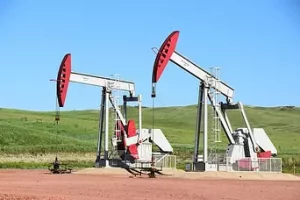Fossil Fuels
Fossil Fuels
Often, when people think about the harmful environmental effects of electronics waste, they think first and foremost about how equipment discarded in landfills decomposes over time, depositing heavy metals and other toxic substances into the soil, water, and air.
However, there is another significant environmental impact that e-waste has aside from direct contamination. Failure to utilize proper e-waste recycling solutions to dispose of unwanted tech leads to unnecessary energy consumption. In addition to reducing the availability of finite fossil fuels, this contributes to climate change and also exacerbates a number of other environmental issues.
What Are Fossil Fuels?
Fossil fuels are substances created by the decomposition of organic matter over the course of millions of years. The three main forms of fossil fuels are oil, coal, and natural gas.
Because these substances are rich in hydrocarbon, they are highly combustible, making them ideal for energy production. However, the burning of fossil fuels releases large amounts of CO2, a greenhouse gas known to accelerate climate change.
Additionally, fossil fuels are considered a “dirty” form of energy, meaning that they release particulates into the atmosphere, leading to the creation of fog and acid rain. Notably, fossil fuels contain certain radioactive materials, such as uranium, which can have severe toxic effects on human health, leading to increased rates of cancer and other diseases.
E-Waste and Fossil Fuels
Although e-waste and fossil fuels might seem unrelated at first glance, they are actually very closely linked. But what exactly is the connection between carelessly discarded electronics and increased energy consumption?
Too often, it is easy to forget that virtually all electronic devices are manufactured utilizing a number of rare and precious materials. This includes gold, silver, copper, aluminum, platinum, and more. During the recycling process, many of these materials can actually be reclaimed for use in the manufacturing of new electronics.
Unfortunately, discarding e-waste in landfills sidesteps the recycling process entirely. The result? A lot of those precious materials are lost. For example, it is estimated that over 330 tons of gold are dumped into landfills each year; that’s roughly 10% of all the gold mined worldwide!
Because these materials are not recycled in the creation of new devices, manufacturers must instead turn to mining to get the components they need. Not only does mining harm the earth directly, but it also requires burning huge amounts of fossil fuels.
E-Waste Recycling Prevents Fossil Fuel Waste
All the environmental damage described above could easily be prevented via e-waste recycling. Instead of being lost to landfills, precious metals can be taken and reintroduced into the manufacturing process, reducing the need for unnecessary fossil fuel waste.
If you need to dispose of old or broken electronics, it’s important to do so responsibly. Newtech Recycling can help. We offer e-waste pick-up, destruction, and recycling services for businesses and organizations of all sizes.
Do your part to prevent fossil fuel waste; contact Newtech Recycling now!


